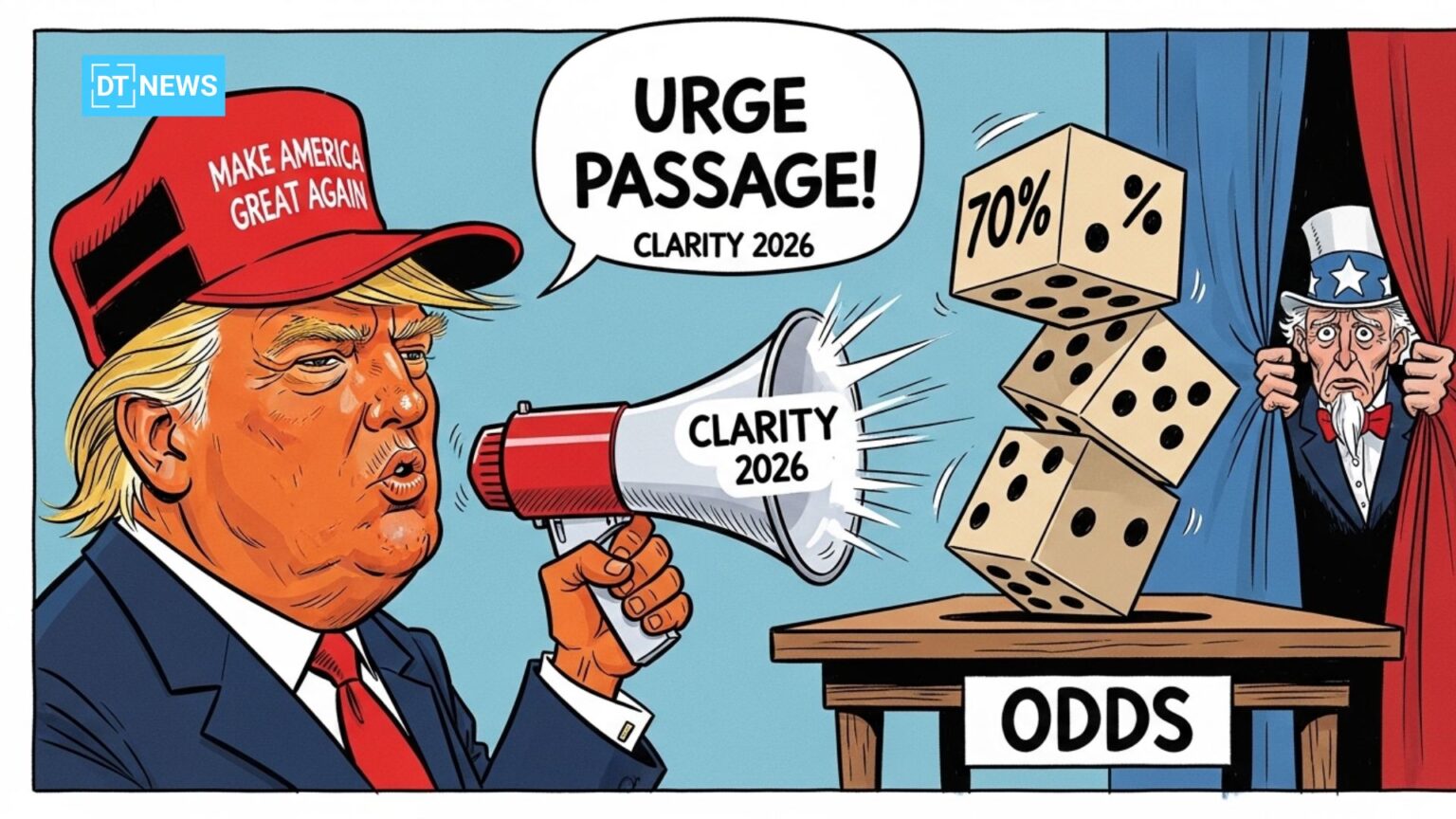Bitcoin Stability Contrasts With Ether and Solana Declines Amid Mideast Stress
This article was first published on Deythere. Crypto market began the week on…
Bitcoin Price Surges 6% Towards $70K as CME Premium Jumps
Bitcoin price surge set the direction at the start of Monday’s U.S.…
Uniswap Wins Lawsuit as Court Rejects Scam Token Liability Claims
This article was first published on Deythere. The long running Uniswap lawsuit…
How Ethereum Price Prediction Turns Critical After 6 Losses
Ethereum price prediction has become one of the most searched topics in…
Senate Housing Bill Adds Retail CBDC Ban With 2030 Sunset
This article was first published on Deythere. A bipartisan U.S. Senate housing package…
Crypto Market Sell-Off: Geopolitics, Liquidations and $500M Fallout
This article was first published on Deythere. Crypto market sell-off marked a challenging…
Vitalik Says Ethereum Smart Accounts Are Finally “Within a Year”
Ethereum’s long-awaited upgrade to introduce account abstraction, popularly called Ethereum smart accounts, …
Cardone Capital Prepares Blockchain Tokenization of Property Assets
Cardone Capital tokenization is no longer a quiet concept as it is…
Bitcoin Price Rebound Faces Headwinds From UN Alarm, Hormuz Oil Risks
This article was first published on Deythere. Bitcoin price fell on weekend geopolitical…
How Layer 0 Protocols Unlock Cross-Chain Blockchain Growth
Layer 0 protocols are becoming the key foundation for blockchain interoperability, changing…








































